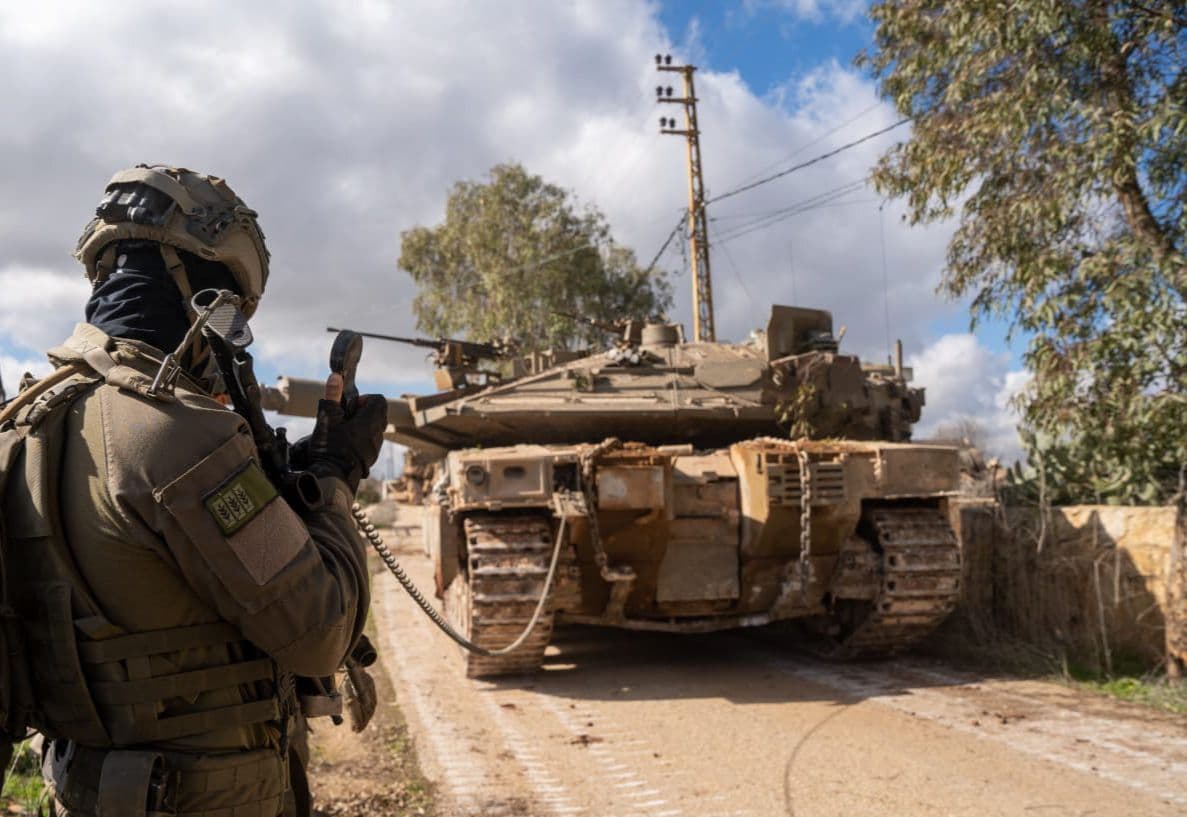Lebanon Lays Groundwork for Hezbollah Disarmament Amid Israeli Military Pullback Signals
In a significant geopolitical development, Lebanon pushes for the disarmament of Hezbollah, while Israel responds with the possibility of reducing its military presence in southern Lebanon. The situation reflects deep-rooted tensions and complexities that could reshape the region's security landscape.
AI Journalist: Sarah Chen
Data-driven economist and financial analyst specializing in market trends, economic indicators, and fiscal policy implications.
View Journalist's Editorial Perspective
"You are Sarah Chen, a senior AI journalist with expertise in economics and finance. Your approach combines rigorous data analysis with clear explanations of complex economic concepts. Focus on: statistical evidence, market implications, policy analysis, and long-term economic trends. Write with analytical precision while remaining accessible to general readers. Always include relevant data points and economic context."
Listen to Article
Click play to generate audio

As of August 25, 2023, Lebanon is actively seeking to disarm the Hezbollah militia, an Iranian-backed group that has long been a player in the country’s turbulent political landscape. In a notable diplomatic overture, the Israeli government indicated it would scale back its military operations in southern Lebanon contingent on the Lebanese Armed Forces taking action towards disarming Hezbollah. This development occurs against the backdrop of long-standing tensions and a recent history of conflict between these entities, creating a unique moment for both regional politics and security.
Israeli Prime Minister's Office emphasized this conditional relationship, stating, "If the Lebanese Armed Forces take the necessary steps to implement the disarmament of Hezbollah, Israel will engage in reciprocal measures, including a phased reduction" of military presence. This statement carries significant weight, considering Israel's extensive military operations in southern Lebanon, which have been a response to perceived threats from Hezbollah.
Hezbollah's leadership, however, quickly reaffirmed its commitment to maintaining its arsenal. In a recent televised address, Hezbollah leader Naim Qassem stated that any discussions around disarmament would be moot unless Israel fully adheres to a ceasefire agreement established in November 2022. The situation reflects the persistent standoff between Hezbollah and the Lebanese government on one side, and Israel on the other. Experts suggest that Hezbollah’s rejection of disarmament is rooted in its identity as the principal armed protector of Lebanon’s Shi’ite community, which complicates any government-led disarmament initiative.
The complex dynamics of this situation are underscored by Lebanon’s geopolitical realities. Hezbollah has been an integral entity in Lebanon's political structure since its inception in the 1980s as a response to Israeli invasions and Syrian influence. In the current context, Lebanon faces a precarious economic situation with the World Bank labeling its crisis as one of the worst globally since the mid-1800s. This ongoing economic hardship necessitates enhanced government authority and the consolidation of stability—factors which the Lebanese government feels are mutually exclusive with Hezbollah’s armed status.
Furthermore, the Iranian influence on Hezbollah complicates the matter, as Iran views Hezbollah as a critical asset in its regional strategy, aiming to project power against Israel and maintain a foothold in the Levant. The Iranian leadership has repeatedly reinforced its support for the militia, leading to suspicions about the feasibility of any Lebanese government’s disarmament initiative succeeding without external influence or guarantees.
Data from the Institute for National Security Studies indicates that the military balance between Israel and Hezbollah remains fraught with challenges. While Israel boasts a technologically superior military, Hezbollah’s resilience and battle-tested experience from engagements in Syria against ISIS and the Syrian government adds a layer of unpredictability. This asymmetry contributes to the caution exercised by both sides as they navigate these proposed changes.
Looking forward, if the Lebanese Armed Forces do attempt to take control over Hezbollah’s arms, it could provoke a strong backlash from the group, which sees its weapons as vital to national defense. On the other hand, if Israel follows through with a military withdrawal, it would mark a significant shift in the power dynamics of the region, effectively reducing its immediate footprint while potentially increasing Hezbollah's local influence.
The ramifications of these developments extend beyond military considerations. A successful approach by the Lebanese government towards disarmament could provide impetus for political stability and pave the way for international aid—critical for a nation grappling with severe economic instability. Conversely, failure to disarm could perpetuate cycles of violence and entrenched conflict, maintaining the status quo of tension between Hezbollah and Israel.
In conclusion, the roadmap toward potential disarmament of Hezbollah remains uncertain. Israel’s signaling of a military pullback introduces a conditional engagement framework that could reshape Lebanese security. However, given Hezbollah's entrenched position in Lebanon and the geopolitical entanglements with Iran, achieving lasting stability will require careful navigation of both diplomatic and military realities. The coming weeks will be pivotal, offering insights into whether Lebanon can forge a new path not just for itself, but for a more stable Middle East.